Search
Remove Ads
Advertisement
Summary 
Loading AI-generated summary based on World History Encyclopedia articles ...
Search Results
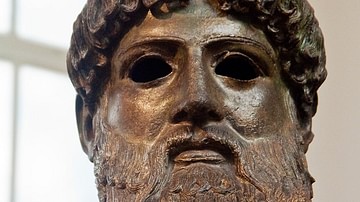
Definition
Zeus
Zeus was the king of the 12 Olympian gods and the supreme god in Greek religion. Zeus is often referred to as the Father, as the god of thunder, and the 'cloud-gatherer'. Zeus controlled the weather and offered signs and omens. Zeus generally...
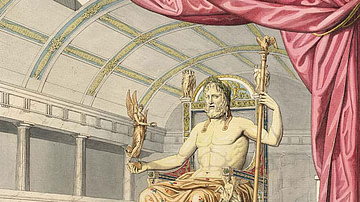
Definition
Statue of Zeus at Olympia
The monumental statue of Zeus at Olympia in Greece was one of the Seven Wonders of the Ancient World. Created in the 430s BCE under the supervision of the master Greek sculptor Phidias, the huge ivory and gold statue was bigger even than...
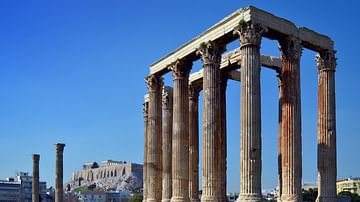
Article
Temple of Olympian Zeus, Athens
The Temple of Olympian Zeus in Athens, also known as the Olympieion, was built over several centuries starting in 174 BCE and only finally completed by Roman emperor Hadrian in 131 CE. Its unusually tall columns and ambitious layout made...
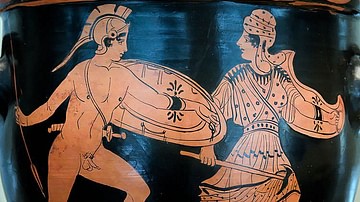
Article
A Visual Who's Who of Greek Mythology
Achilles The hero of the Trojan War, leader of the Myrmidons, slayer of Hector and Greece's greatest warrior, who sadly came unstuck when Paris sent a flying arrow guided by Apollo, which caught him in his only weak spot, his heel. Adonis...
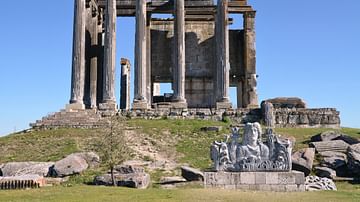
Image
Zeus Temple in Aizanoi
The Temple of Zeus in the Phrygian city of Aizanoi (modern-day Turkey) is one of the best-preserved Roman temples. Its construction started in 92 CE and continued during the reign of Hadrian in the 2nd century CE. The temple is pseudodipteral...
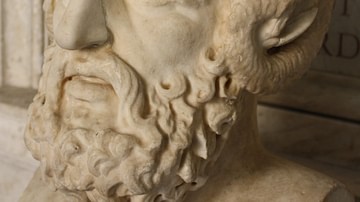
Image
Zeus Ammon
A marble Herme of Zeus Ammon. Roman copy of a Hellenistic original. (Capitoline Museums, Rome)
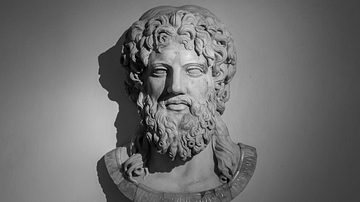
Image
Zeus Bust, Palazzo Altemps
A Roman copy of a Greek archetype from the 5th century BCE; Restored over time, but the beard and curls are original; 2nd century CE; Palazzo Altemps in Rome, Italy
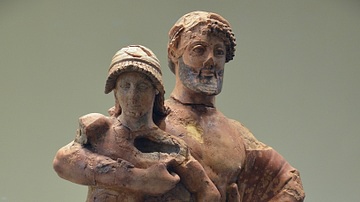
Image
Zeus carrying Ganymede
Terracotta group of Zeus carrying Ganymede from Troy to Olympus. Corinthian workshop, beginning of 5th century BCE. Olympia Archaeological Museum, Greece.
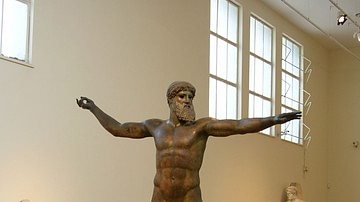
Image
Zeus or Poseidon from Cape Artemisium
A bronze statue of Poseidon (or Zeus) from Cape Artemisium (460 BCE), National Archaeological Museum, Athens.
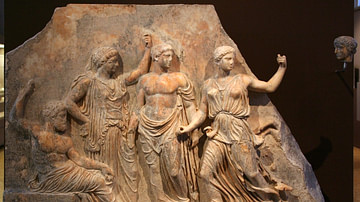
Image
Zeus, Leto, Apollo & Artemis
A relief showing Zeus and Leto with their offspring Apollo and Artemis to the right. 420-410 BCE. (Archaeological Museum of Brauron, Greece)